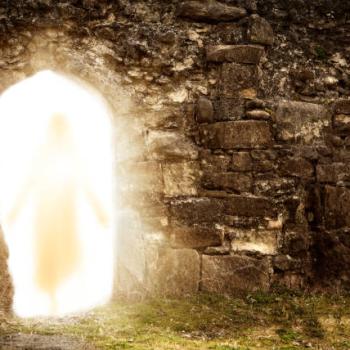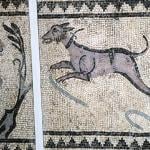
For a long time I have wondered what to think about Pope Francis’s suggestion about changing the translation of the Lord’s Prayer. The familiarity of the words almost, but not quite, buries the oddness of the petition “Lead us not into temptation.” That same familiarity has had me looking for a reason not to change. Luke’s Gospel account of Jesus in the Garden of Gethsemane, which we heard on Palm Sunday, helps.
Pope Francis on asking God not to lead us into temptation
It’s been over a year since Pope Francis said that the translation of the Lord’s Prayer in English and other languages was wrong. The pope is not shy about challenging the Church in many ways. Now he suggests changing “lead us not into temptation” into something like “don’t let us fall into temptation.” After all, what Father tempts his children to sin? As the Pope put it, that’s the devil’s job.
Since then the Italian and French bishop conferences have instituted the suggested change. Italians will be praying “Do not abandon us in temptation.” Germany, so much in the forefront with other new ideas, has decided to keep the traditional wording. Responses by commentators have been many and varied.
A first reaction here is that a translation ought to be a translation, not a commentary. Both in Greek and Latin the prayer says clearly, “Lead us not….” Besides that, I’m concerned about unilaterally changing the wording of this prayer. We ought to be able to pray it in common with Protestant brothers and sisters.
The Lord’s Prayer in the Garden of Gethsamane
In the Bible accounts Jesus doesn’t pray the Lord’s Prayer in the Garden of Gethsemane. He prays, “Let this cup pass from me.” Then, in Luke’s Gospel, Jesus finds the disciples sleeping and urges them to pray “that you may not undergo the test.” (Luke 22:39-46) “Test” in the Greek is “peirasmos,” and “temptation” in the Lord’s Prayer is “peirasmos.” The “cup” that Jesus prays God would take away is also a kind of peirasmos, or test.
Most of the “corrections” of the Lord’s Prayer center around the phrase “lead us not.” Charles McNamara, in a Commonweal article, goes back to the early Church Fathers Tertullian and Cyprian for their interpretations of the “lead us not” phrase. It comes across as “do not allow us to be led into temptation.” Later Ambrose and Augustine even allowed for changing the wording itself of the prayer. People were adding the verb for “do not allow.”
That is the path that Pope Francis and the French and Italians follow. As a translation, I think it’s doubtful. As for understanding the prayer–that’s Francis’s main concern–I can think of a more helpful change. We should think about the word “temptation” instead of the phrase “lead us not.” Palm Sunday’s text of the Gospel of Luke shows that the Greek word “peirasmos” can have more than one meaning. It can mean temptation or test or, perhaps better, trial or peril. “Peril,” actually, is related etymologically to the Greek “peirasmos.”
Don’t spiritualize a down-to-earth prayer
Does God ever lead people into trials or perils? Yes, and here are some examples:
- Jesus certainly felt he was being led by God into almost certain torture and death. He was willing to undergo that trial, but he did ask God to be let off, if possible.
- Near the beginning of the first three Gospels, God’s Spirit leads Jesus into the desert to face another trial. The devil will hold out the inducements of comfort, power, and fame. Here the word for the devil’s offerings is again “peirasmos.” “Temptation” or “test” would be equally good translations.
- In the book of Genesis, Abraham is tested by God with the command to offer up his son, Isaac. The verb for what God does has the same root as the noun “peirasmos.”
We puzzle about the inappropriateness of praying God not to “lead us into temptation.” We’re thinking of temptations to any number of sins that we might individually commit. That wasn’t Jesus’ concern in the garden. He worried about some very physical harms toward which God, in the divine scheme of things, might lead his followers. It would eventually be their destiny and that of numerous Christians, as it was Jesus’ destiny. Jesus says to pray to be spared.
In Mark Jesus predicts the catastrophic events surrounding the fall and destruction of Jerusalem, which happened in the year 70. This time Jesus says, “Pray that this does not happen in winter.” In other words, lead us not into the worst of the trials.
Nicholas Frankovich, in another Commonweal article, says we over-spiritualize the Lord’s Prayer when we imagine temptation as temptation to sin:
[T]he ‘temptation’ that we ask the Father to keep at bay is a stress on us first of all in the here and now. It’s a this-worldly hardship. Let’s not try to be more spiritual than Jesus himself at prayer in Gethsemane. Pray for the virtue of the martyrs … should a decision like the one they had to make confront you. First, pray that it doesn’t confront you.
Image Credit: Springhouse Worship and Art Center via Google Images












